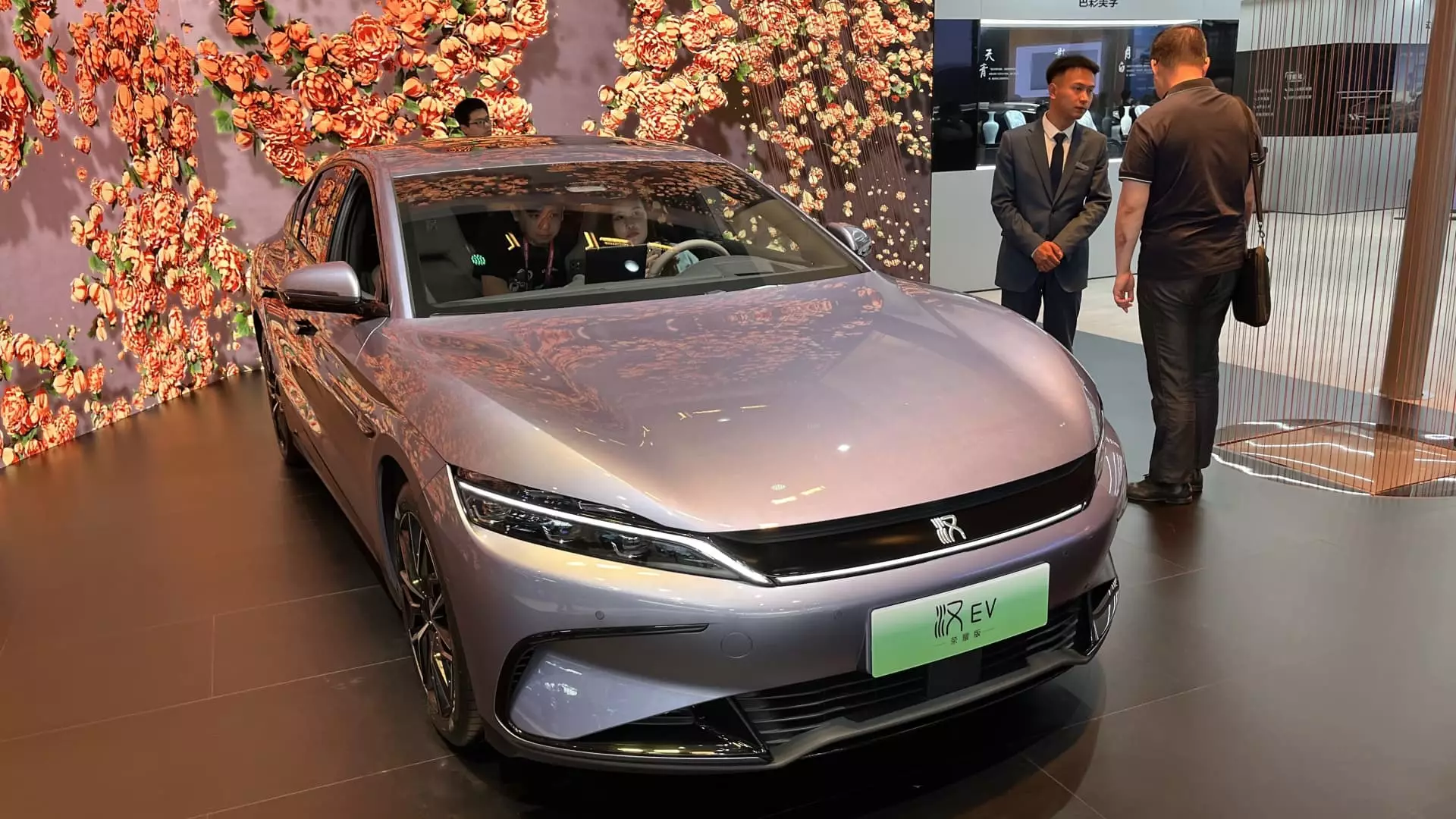The electric car market in China is undergoing a significant transformation, moving away from a sole focus on price competition. With the industry entering a new phase, companies are now placing more emphasis on providing features that cater to consumer preferences. According to a recent survey conducted by JPMorgan, over 80% of Chinese consumers expressed a preference for electric vehicles equipped with panoramic sunroofs. This shift in consumer demand presents an opportunity for companies to differentiate themselves and boost profit margins by offering desirable features.
One of the key findings of the survey is that Chinese consumers are increasingly willing to pay a premium for added features in electric vehicles. This marks a departure from the price sensitivity observed in other markets such as the U.S. and Europe. Companies in the electric car industry must now focus on developing content that resonates with Chinese consumers, whether it be driver-assist capabilities, in-car entertainment, or advanced battery technology.
The demand for panoramic sunroofs presents a lucrative opportunity for companies within the automotive supply chain. Glass manufacturers, such as Fuyao Glass, stand to benefit from the growing popularity of this feature in Chinese electric cars. With only 12% of cars worldwide currently equipped with panoramic sunroofs, the market remains largely untapped. JPMorgan analysts have identified Fuyao Glass as a top pick to capitalize on China's expanding electric car market, with panoramic sunroofs accounting for a significant portion of the company's revenue.
It is evident that Chinese consumers are increasingly focused on the content and features offered in electric vehicles, signaling a shift towards a more technology-driven market. Companies that can anticipate and respond to these changing consumer preferences will be well-positioned to succeed in China's rapidly evolving electric car industry.
While the electric car market in China is growing, not every consumer is ready to make the switch to purely electric vehicles. JPMorgan's survey revealed a notable increase in the preference for hybrid-powered vehicles over battery-only cars. This shift in consumer behavior highlights the importance of offering a range of options to cater to varying preferences within the market. Companies like BYD, which produce both hybrid and battery-only cars, are well-positioned to capitalize on this trend.
The emergence of new players in the electric car market, such as Xiaomi and Nio, poses a challenge to established brands like Tesla. While Tesla remains popular among Chinese consumers, competition in the market is intensifying. Companies will need to innovate and differentiate themselves to stand out in a crowded field. Nio's recent release of a lower-priced electric car indicates a shift towards more affordable options in response to changing consumer demands.
As the electric car market in China continues to evolve, companies must stay agile and adapt to changing consumer preferences. With a focus on content and features, as well as an emphasis on advanced battery technology, companies can differentiate themselves and capture market share. The rise of hybrid vehicles and the popularity of brands like BYD and Xiaomi highlight the need for companies to offer a diverse range of options to appeal to a broad consumer base.
Winning in China's electric car market is no longer just about offering the cheapest price. Companies that can understand and respond to shifting trends in consumer preferences will be best positioned to succeed in this dynamic and competitive industry. By focusing on innovation, technology, and meeting the evolving needs of Chinese consumers, companies can carve out a profitable niche in one of the world's largest electric car markets.

